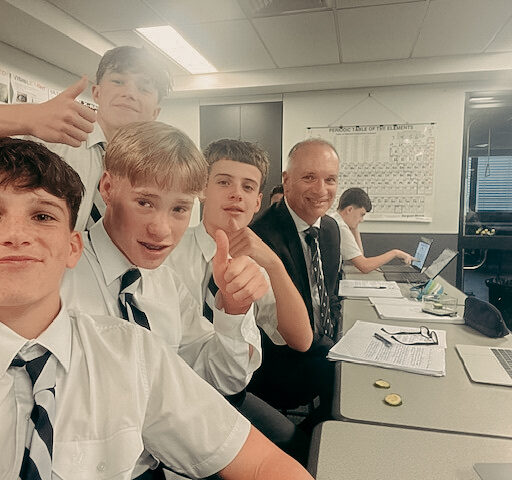Welcome back to the new year. Over the next week or two your sons will get a great deal of advice from their teachers, mentors, Heads of House and me about how to succeed at school this year. We are sure that they will drink in every word and be begging their teachers for more. On the off chance that this does not happen, however, I thought I would start the year by writing about how you might be able to help out too. They are the educational version of New Years resolutions, just without the references to weight, alcohol and exercise. Also, with the youngest of my own children having finished school in 2023 I can now offer suggestions without feeling stirrings of guilt or hypocrisy. All of my mistakes and omissions are in the unrecoverable past.
More seriously, this guide below is about suggesting a few areas for what is probably already a formidable arsenal of techniques at your house. If you pick up a tip or two, or think to yourself ‘yes, I know that, I should really give it more of a try’, then that would be great. Although the words below are mine, I got the headings from the book The Science of Learning by Edward Watson and Bradley Busch.
Anyway, here goes:
Have high academic expectations of your children. Be interested in how they could have done better and ask them about this. Teachers talk about ‘Vygotsky’s zone of proximal development’, which is the idea that students can usually aim just a little bit higher than how they did last time. Each child is different, and you will know where to pitch it for your own son. But push it. (If necessary, hide or burn your own school reports.)
Don’t praise them too much. Kids can get brittle. They can also believe you and get narcissistic.
When you praise, look at the effort more than the result. This is the work of a researcher called Carol Dweck who talks lot about ‘fixed mindsets’ [you are really talented at this] versus ‘growth mindsets’ [you worked really hard at this, what can you do next]. The kids with growth mindsets regularly do better in subsequent assessments activities and games. Your son will probably work out you are doing this and give a silent, or not so silent, groan. But they are going to scorn you anyway, so it may as well be about this as your fashion sense or music choice.
Read to them, or near them. This is age dependent, and Year 11 boys do not need bedtime stories. But read to them as long as you can get away with it, and even after this, keep up an interest in what they are reading if you can. You can also suggest books, leave books lying around, give them books for their birthday, surround their bed with books, bribe them to read etc. In most cases, this will be like raking molasses up a hill, but almost nothing predicts future success in academic work than maintaining a reading habit through high school. If all of this fails you could try begging and crying… (see above point about ‘they are going to scorn you anyway’).
Have dinner together as often as you can. Try to get that regular time together. It is time to find out about the day and be involved. My best conversational tip if/when you get a series of monosyllables or grunts to your questions is ‘tell me more’. It is guaranteed to work at least 65% of the time. (Incidentally, driving can be pretty good conversation time too – it also feels like parallel playing to your son).
Have a clear structure – try to have a plan for homework time, for leisure time and for organised activity, including sport, time. Even if it is rubbery, at least a sort of timetable is a touchstone. Late January is a good time to start one up. Don’t let homework be the thing that gets squeezed in a busy life.
Limit their phone time. Of all of the hard things on the list, this is just about the hardest. We all know the research and the effect of social media and phone addiction; social media is just about the worst thing to happen to kids since the Children’s Crusade. So try to limit it. Even if it just the last hour or two at night – or having the charger outside the bedroom (with an alarm clock inside the bedroom). For younger kids, even if it is just regular hours when they can use them and regular hours where they can’t. Parent disclosure – I lost the battle in the end, but at least I hope it was closer to the end than it would have been if I didn’t fight regularly about it for almost a decade.
Each of these seven areas probably deserves an article of its own – and they certainly have all been the subject of a lot of research. I do hope this piece has been of some help, whether by creating in you the warm smug glow of parenting triumph or giving a goad to redouble your effort at one or two things. Good luck and all the best for a great year.




